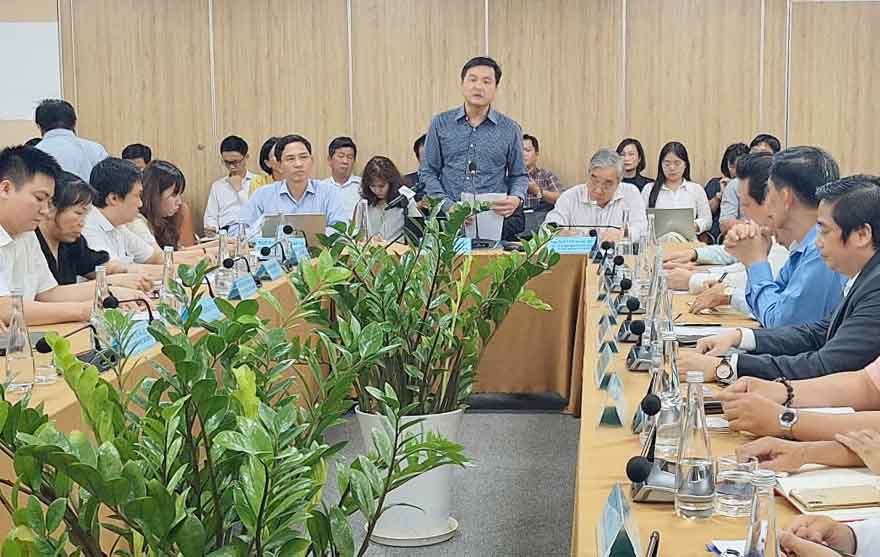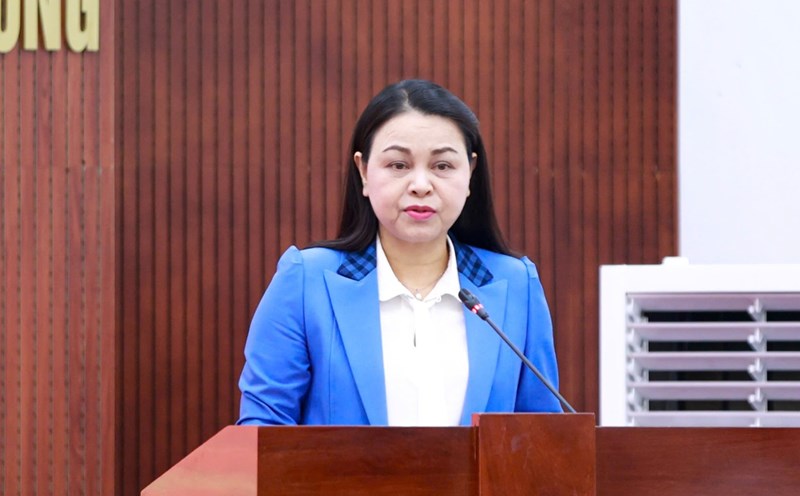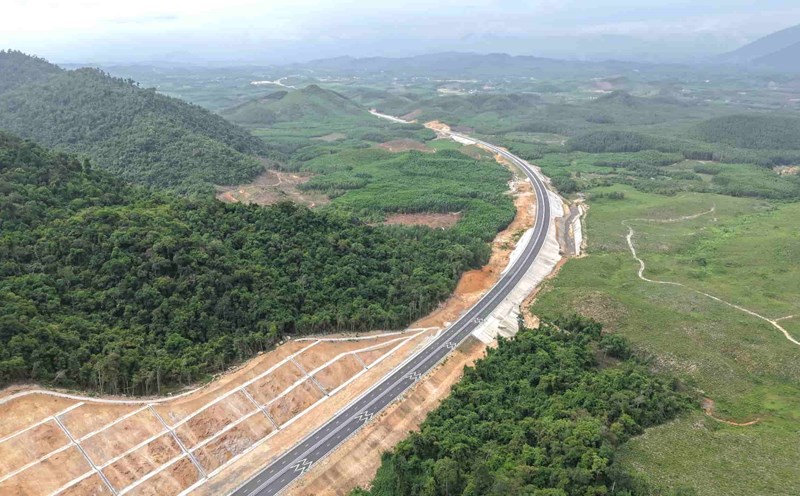According to Mr. Bui Ta Hoang Vu - Director of the Department of Industry and Trade of Ho Chi Minh City, from the highest leaders of the country, the Prime Minister to ministries and branches are all paying special attention to new changes in US tax policy.
As the economic locomotive of the country, Ho Chi Minh City is an important production and export center. The US is currently a large market, accounting for a significant proportion of the city's import-export turnover. This is also the reason why the Department of Industry and Trade of Ho Chi Minh City must urgently grasp the situation of enterprises and promptly assess possible impacts" - Mr. Vu emphasized.

The survey of business opinions of the Ho Chi Minh City Wood Art and Processing Association (HAWA) shows that out of a total of 50 surveyed enterprises, up to 52% of enterprises have the main market of the United States, accounting for more than 50% of the enterprise's export sales.
Businesses are in the process of finding solutions to cope with US counterpart taxes. Despite some efforts to shift market direction and reduce costs, many companies still do not have a clear plan and are waiting for more information from the government or the market. Expanding international markets, especially in Europe and other regions, is the main direction, but the issue of reducing costs and increasing production productivity is still a big challenge.
Mr. Nguyen Chanh Phuong - Vice Chairman of the Ho Chi Minh City Wood Art and Processing Association - said that in the early days when the information was given, many businesses were very worried about canceled orders and interrupted export activities.
"However, I see that businesses are still exporting normally. Large enterprises have not stopped stopping orders, so the sentiment is somewhat stable, everyone is calmer" - Mr. Phuong shared.
The businesses also recommended that the Government and competent authorities take strong interventions in tax reduction, financial support, trade promotion, origin control and infrastructure improvement. negotiations with the US to reduce counterpart tariffs and expand international markets are considered important steps to help businesses maintain competitiveness and minimize losses from counterpart tariffs. The company also called for quick support in providing information and legal advice to deal with the current situation.
For the textile and garment industry, Mr. Pham Van Viet - Vice President of the Ho Chi Minh City Textile and Garment and Knitting Association - said that the US market plays a particularly important role for the Vietnamese textile and garment industry. Revenue from this market often accounts for an average of 20-30% of total revenue of enterprises, some enterprises even have this rate of up to 70%.
Regarding immediate solutions, Mr. Viet suggested considering extending the payment period of value-added tax (VAT) for businesses. He also predicted that in the next 3-6 months, many businesses in the industry may fall into a state of cash flow congestion, requiring support from banks.
In the long term, he said that the Government needs to have a systematic and synchronous strategy to support domestic enterprises in converting supply chains and diversifying input materials.
At the same time, it is necessary to create conditions for businesses to promote green transformation, apply high technology to production to increase competitiveness and adaptability in the new context.












